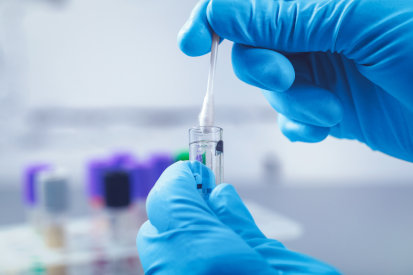In today’s globalised world, crimes are increasingly being committed across borders, and borders are being crossed in an attempt by fugitives to evade law enforcement. An example is an Australian citizen committing a crime overseas, and then returning to Australia.
In serious crimes such as sexual assaults, examining DNA evidence is a key investigative procedure which helps to bring perpetrators to justice. But what would happen in the example of an Australian committing a sexual assault overseas and then returning home? Could the foreign country compel the suspect to provide DNA evidence?
The short answer is ‘yes’. The long answer is ‘it depends’.
Mutual assistance provisions relating to forensic procedures
Mutual assistance is the formal process of sharing evidence about criminal investigations or prosecutions between countries. Australia’s system of mutual assistance with foreign states is governed by the Mutual Assistance in Criminal Matters Act 1987.
Many states rely on mutual legal assistance treaties (MLATs) to govern the MLA process. An MLAT is an agreement between states outlining the terms for managing cross-jurisdictional requests for evidence. These agreements do not always contain provisions which directly refer to assistance by way of forensic procedures.
However, section 28B of the Mutual Assistance in Criminal Matters Act 1987 governs the means by which forensic evidence can be taken in Australia and provided to a foreign country for the purposes of proceeding in relation to a criminal matter. The Attorney-General of Australia has the discretion to approve a constable (an AFP or State police officer) to make an application to a magistrate for a forensic procedure order, once certain criteria are met.
What are the criteria?
A police officer is prohibited from simply ordering or carrying out a forensic procedure on a suspect at the request of a foreign country.
Once the Attorney-General has applied to a magistrate for a forensic procedure order, the magistrate needs to consider a wide range of facts and circumstances before deciding whether to finally order the forensic procedure to be carried out.
Key considerations by the magistrate include:
- Whether or not the suspect is in custody and has consented to the forensic procedure.
- Whether the forensic procedure has been ordered by a foreign government or a foreign law enforcement agency – interestingly, a magistrate is not authorised to order the carrying out of a forensic procedure on a suspect if the procedure has been requested by a foreign law enforcement agency.
- How satisfied the magistrate is that the person is a suspect, whether there is sufficient evidence that they committed a relevant offence, and whether there are reasonable grounds to believe that the forensic procedure is likely to produce evidence tending to confirm or disprove that the suspect committed a relevant offence.
- Balancing the public interest to Australia in consenting to carrying out a forensic procedure against the public interest in upholding the physical integrity of the suspect. This involves considering a range of factors including the objective seriousness of the offence, the age, physical and mental health of the suspect.
An order for a forensic procedure may be made at the conclusion of a forensic provision hearing at which the suspect is entitled to be present and legally represented.



